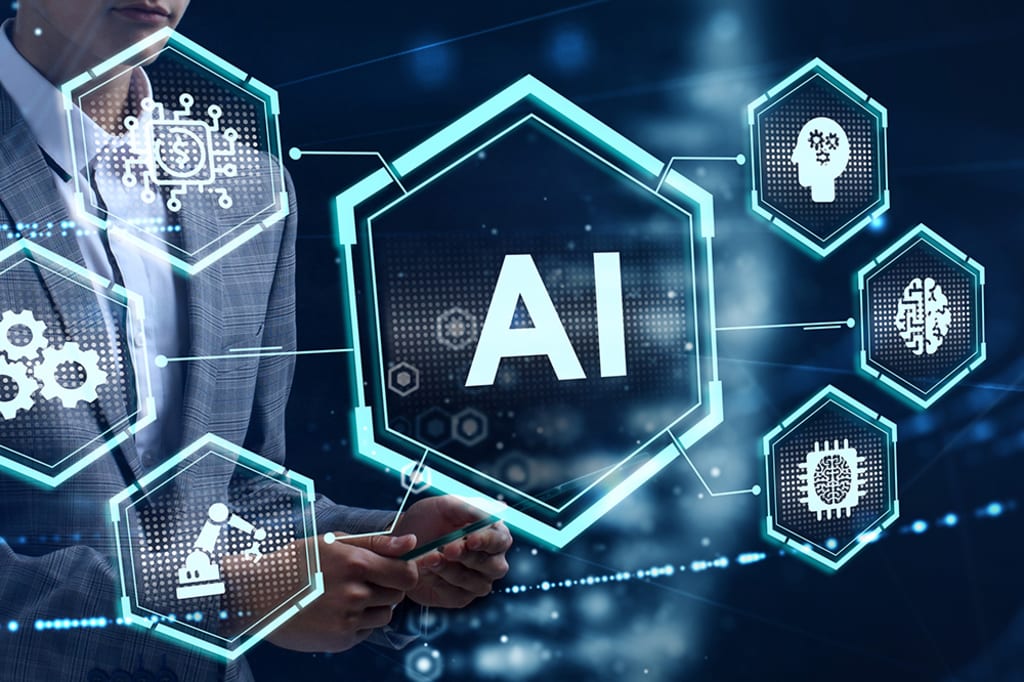The future of artificial intelligence and its impact on society.
ARTIFICAL INTELLIGENCE

The future of artificial intelligence (AI) is a widely debated topic that has the potential to greatly impact society in a number of ways. Here are a few areas in which AI is expected to have a significant impact:
Automation of jobs:
AI-powered machines and software are increasingly being used to automate tasks that were previously done by humans. This could lead to significant job losses in certain industries, but it could also lead to increased productivity and economic growth. Here are a few ways in which automation is already affecting jobs:
- Replacing certain tasks: AI-powered machines and software are increasingly being used to automate tasks that were previously done by humans. This can include things like data entry, customer service, and even some types of decision making.
- Improving efficiency: Automation can help to increase productivity and efficiency in certain jobs, allowing for more output with fewer resources.
- Creating new jobs: Automation may also lead to the creation of new jobs in areas like data analysis, programming, and maintenance of the automation systems.
- Changing job requirements: As certain tasks are automated, the requirements for some jobs may change. For example, workers may need to learn new skills to work with the automation systems.
- Reducing labor costs: Automation can also lead to reduced labor costs for companies, which can be passed on to consumers in the form of lower prices.
It's important to note that automation is not necessarily a bad thing, it can bring many benefits like improved productivity, reduced costs, and safety improvements. However, it can also lead to job losses and a need for new skills. Governments and companies should work together to mitigate the negative effects of automation, such as retraining programs for displaced workers and policies that promote economic growth.
Healthcare:
AI has the potential to revolutionize healthcare by allowing for faster and more accurate diagnoses, as well as the development of new treatments.Artificial Intelligence (AI) has the potential to revolutionize healthcare in a number of ways. Here are a few examples of how AI is currently being used in healthcare and the potential benefits it can bring:
- Diagnosis: AI-powered diagnostic tools can analyze medical images and patient data to assist with diagnosis and disease monitoring. This can lead to faster and more accurate diagnoses, which can help to improve patient outcomes.
- Treatment: AI can be used to identify new treatment options, optimize existing treatments, and even develop new drugs.
- Personalized medicine: AI can be used to analyze large amounts of patient data to identify individualized treatment plans.
- Medical research: AI can be used to analyze and identify patterns in medical research data to accelerate the development of new treatments and drugs.
- Remote monitoring: AI can be used to remotely monitor patients, allowing healthcare professionals to quickly respond to changes in a patient's condition.
- Predictive Analytics: AI can be used to predict patient outcomes, identify high-risk patients, and help prevent hospital readmissions.
While AI has the potential to greatly benefit healthcare, it's important to note that there are also concerns about data privacy, security, and the potential for bias in the algorithms used. Governments and healthcare organizations should work together to ensure that AI is developed and used in an ethical and responsible manner.
Transportation:
Self-driving cars and drones powered by AI could greatly improve transportation efficiency and safety.Here are a few examples of how AI is currently being used in transportation and the potential benefits it can bring:
- Self-driving cars: AI-powered self-driving cars have the potential to greatly improve transportation efficiency and safety. They could greatly reduce the number of accidents caused by human error, and make transportation more accessible to people who are unable to drive.
- Traffic management: AI-powered traffic management systems can analyze traffic data to optimize traffic flow and reduce congestion.
- Public transportation: AI-powered public transportation systems can optimize routes and schedules to improve efficiency and reduce wait times.
- Logistics and delivery: AI can be used to optimize routes and scheduling for delivery vehicles, reducing delivery times and costs.
- Drones: AI-powered drones can be used for tasks such as package delivery, search and rescue, and monitoring of infrastructure.
- Predictive Maintenance: AI can be used to predict when vehicles and other transportation infrastructure will need maintenance, which can help to reduce downtime and improve efficiency.
Personalization and convenience:
AI-powered personal assistants and other applications will be able to predict and fulfill our needs, making our lives more convenient.Here are a few examples of how AI is currently being used to personalize and enhance convenience in different areas:
- E-commerce: AI-powered e-commerce platforms can personalize product recommendations, search results, and marketing messages based on a customer's browsing and purchase history.
- Customer service: AI-powered chatbots and virtual assistants can provide personalized assistance and support to customers, 24/7.
- Advertising: AI can be used to personalize ad targeting, so that ads are more likely to be relevant to the person viewing them.
- Music and video streaming: AI-powered music and video streaming services can personalize music and video recommendations based on a user's listening and viewing history.
- Smart Home: AI-powered smart home devices can be used to personalize the environment based on the preferences of the people living in the home.
- Personalized health: AI-powered wearables and other devices can be used to track and analyze personal health data, which can be used to provide personalized health recommendations.
Privacy and security:
As AI systems become more advanced, there are concerns about the potential for misuse of data, as well as the possibility of AI systems making decisions that are not in line with human values.
Overall, the future of AI is both exciting and uncertain. While it has the potential to greatly benefit society, it's important to consider the potential consequences and take steps to ensure that AI is developed in an ethical and responsible manner.





Comments
There are no comments for this story
Be the first to respond and start the conversation.